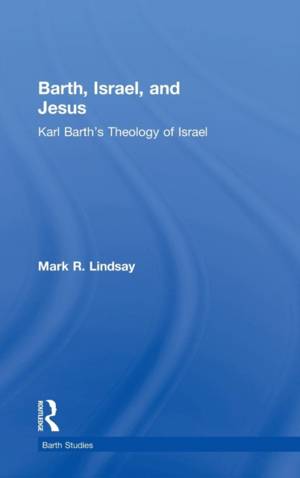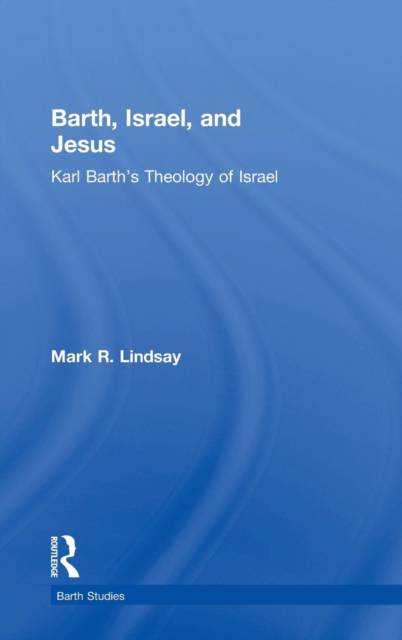
- Afhalen na 1 uur in een winkel met voorraad
- Gratis thuislevering in België vanaf € 30
- Ruim aanbod met 7 miljoen producten
- Afhalen na 1 uur in een winkel met voorraad
- Gratis thuislevering in België vanaf € 30
- Ruim aanbod met 7 miljoen producten
Zoeken
€ 290,45
+ 580 punten
Uitvoering
Omschrijving
The attitude of Karl Barth to Israel and the Jews has long been the subject of heated controversy amongst historians and theologians. The question that has so far predominated in the debate has been Barth's attitude, both theologically and practically, towards the Jews during the period of the Third Reich and the Holocaust itself. How, if at all, did Barth's attitudes change in the post-war years? Did Barth's own theologising in the aftermath of the Holocaust take that horrendous event into account in his later writings on Israel and the Jews? Mark Lindsay explores such questions through a deep consideration of volume four of Barth's Church Dogmatics, the 'Doctrine of Reconciliation'.
Specificaties
Betrokkenen
- Auteur(s):
- Uitgeverij:
Inhoud
- Aantal bladzijden:
- 144
- Taal:
- Engels
- Reeks:
Eigenschappen
- Productcode (EAN):
- 9780754650874
- Verschijningsdatum:
- 28/05/2007
- Uitvoering:
- Hardcover
- Formaat:
- Genaaid
- Afmetingen:
- 156 mm x 234 mm
- Gewicht:
- 381 g

Alleen bij Standaard Boekhandel
+ 580 punten op je klantenkaart van Standaard Boekhandel
Beoordelingen
We publiceren alleen reviews die voldoen aan de voorwaarden voor reviews. Bekijk onze voorwaarden voor reviews.











